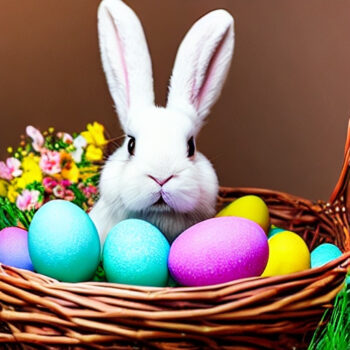Easter is almost here, so the Easter Bunny will be visiting homes around Rock Hill, leaving baskets of goodies for the kids. We take the little egg-bearing rabbit for granted, but how exactly did a cute bunny become associated with this most important of Christian holidays? Here’s a brief history of the Easter Bunny to satisfy your holiday history itch. Read on, then enjoy a chocolate rabbit and a Coke.
Early Origins
The Easter Bunny is a popular symbol associated with Easter celebrations, particularly in Western culture. Its origins can be traced back to ancient pagan festivals celebrating springtime renewal and fertility. The rabbit, known for its prolific breeding, became a symbol of fertility and new life in many ancient cultures.
Osterhase
The exact origins of the Easter Bunny in its current form are somewhat unclear, but its association with Easter can be traced back to 18th-century Germany. German immigrants brought the tradition of the “Osterhase” (Easter Hare) to the United States during the 1700s.
According to folklore, the Osterhase was believed to be a hare that laid colorful eggs for children to find on Easter Sunday. The eggs symbolized new life and rebirth, while the hare or rabbit symbolized fertility. Children would make nests for the Osterhase to lay its eggs, and the tradition of Easter egg hunts likely originated from this practice.
Easter Baskets
Over time, the tradition of the Easter Bunny spread throughout America and other parts of the world, becoming a popular symbol of Easter alongside eggs and other springtime motifs. The Easter Bunny became associated with delivering baskets filled with candy, chocolate eggs, and other treats to children on Easter morning, similar to the role of Santa Claus during Christmas.
The commercialization of Easter in the 19th and 20th centuries further solidified the Easter Bunny’s place in popular culture, as it became a prominent figure in Easter cards, decorations, and advertisements.
Easter Bunny Today
Today, the Easter Bunny is deeply ingrained in Easter celebrations, especially in Western countries, where it remains a beloved symbol of the holiday’s emphasis on new life, fertility, and the arrival of spring.

